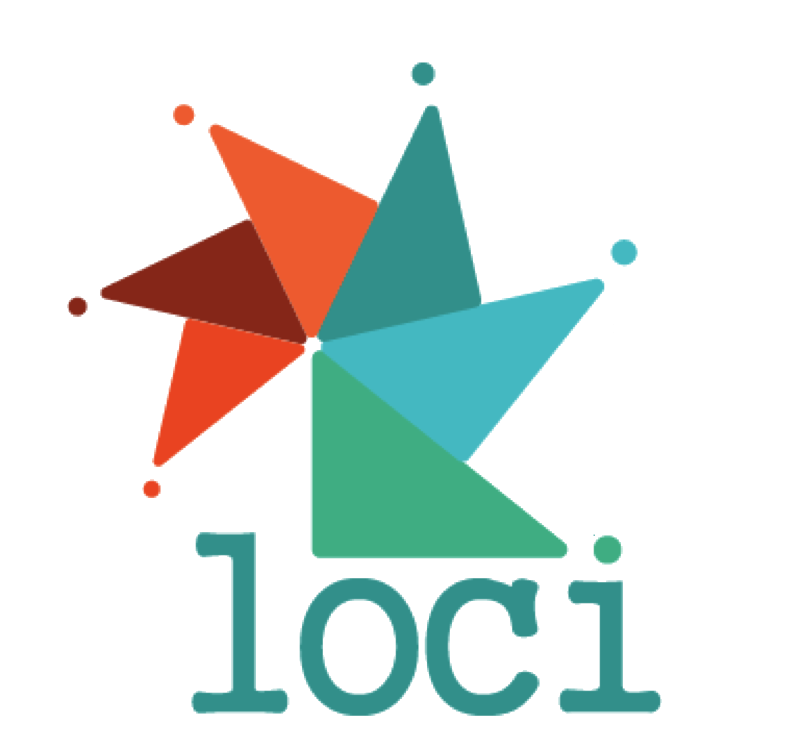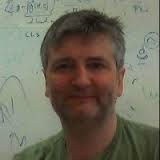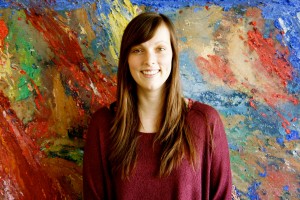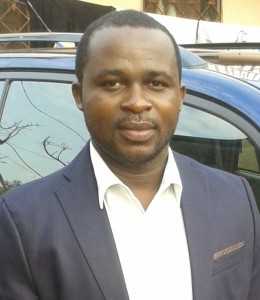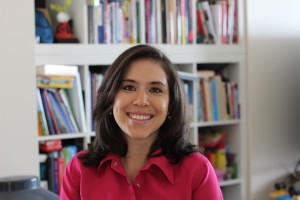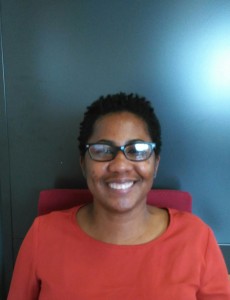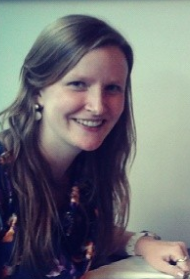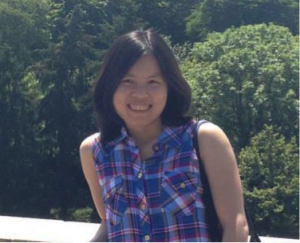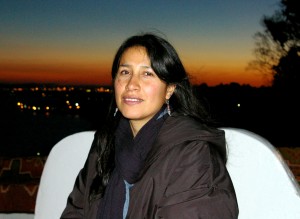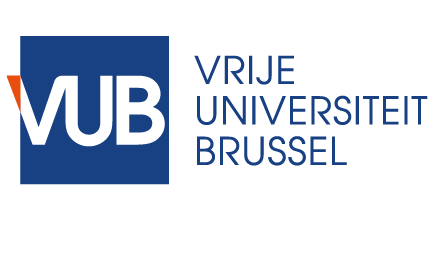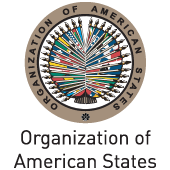LOCI RESEARCH GROUP @ VUB
Putting people in the Center of Development 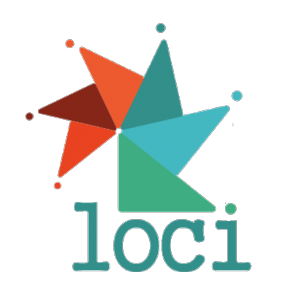
Research Group at Vrije Universiteit Brussel
Pleinlaan 2
1040 Brussels
Belgium
E-mail: loci@vub.ac.be
Contact Us
News
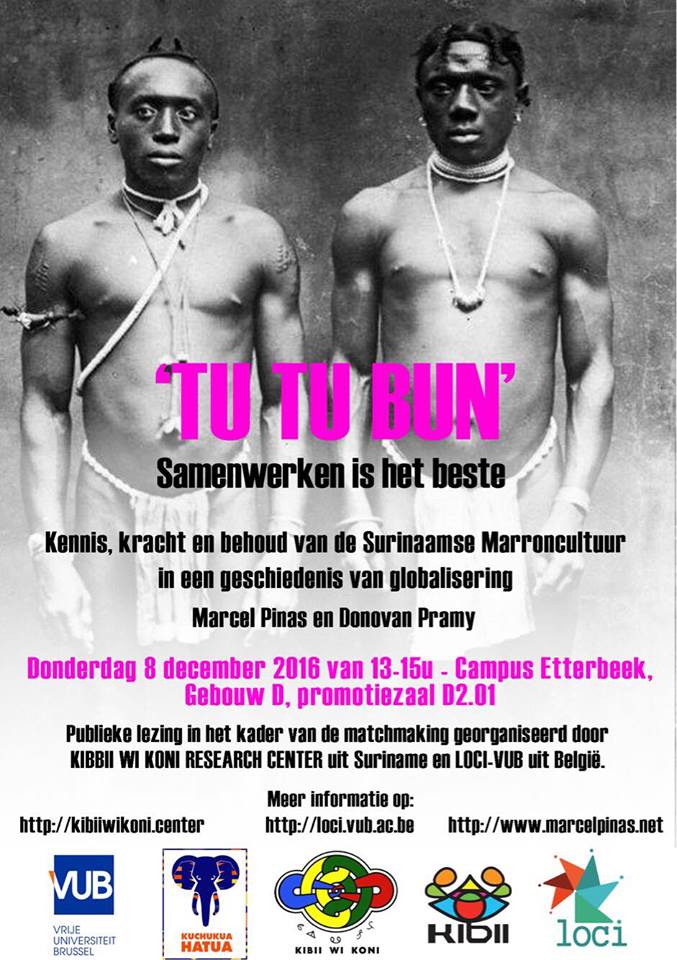
TU TU BUN – Let’s work together
The research unit LOCI-VUB is pleased to invite you to partake in the matchmaking mission of KIBII WI KONI Research Center (Moengo, Marowijne, Suriname). Interested research units and individual researchers can subscribe for an introductory acquaintance meeting... read moreStrategic Research Program-Growth Project
The Strategic Research Program-Growth project (SRP28) with the research theme “Socially inclusive ICT-based adult learning”, supervised by prof. dr. Chang Zhu and prof. dr. Tom Vanwing, is initiated in response to two intertwining trends in adult education. The... read moreVoices for Sustainable Development Goals in Suriname
The 10 year Institutional University Cooperation programme of VLIRUOS (www.vliruos) with the Anton De Kom University (www.uvs.edu) of Suriname provides a unique opportunity to contribute to the institutional development of a university in the South. With the motto... read moreAbout us
Based in Brussels, LOCI assembles scholars and actors from various disciplines (educational sciences, philosophy, mathematics, human ecology, biology, anthropology, …) and from various countries around the world. As a multidisciplinary research group and an open knowledge network, LOCI directly engages with challenges and opportunities in the realm of development through intense collaboration with both global drivers for change such as the Organisation of American States and local actors such as community based organisations and universities.
LOCI stands for an Integrational approach of research in Localities, Ontologies and Commons. By bridging and sharing various forms of knowledge and bringing together different disciplines and actors, we focus on questions of ecology, critical citizenship and civil ownership, community development, education, entrepreneurship, research based policy, and socio-cultural identities. LOCI starts from the tense relation between the global and the local in order to retrace and retreat the meaning of development and agency anew. In doing so, we employ an appreciative and asset based approach and promote creative, collaborative processes of human capacity development in communities and societies. This requires respect for the local, particular agency of people and the continuous search for added values of different perspectives upon challenges.
Social realities, rather than fragmentation in disciplines, are both the starting point and the end of the scientific enterprise in this interdisciplinary approach. One of the main roles for scientists today is the organisation of viable and flexible multidisciplinary networks in order to comprehend and face the increasing global socio-cultural and environmental developments within localities, regions, nations, between nations and across nations.
LOCI-researchers and partners find each other in the conviction that praxis is the primary touchstone of reality. Theoretical constructs and top-down arguments are regarded with caution and local ontological deliberations are considered to be essential. Some current praxes involve ‘biodiversity and human prosperity in coastal zone management’ (Vietnam), ‘community based agro tourism of indigenous villages’, ‘territorial questions of the maroon people and multinational mining companies’, ‘voices for sustainable development goals’ (Suriname), ‘young rural ecological entrepreneurship’ (Colombia), ‘national curricula for citizen education for peace in the school environment’ (Mexico), ‘forest government in wildlife sanctuaries’ (Cameroon), ‘STEM-curricula development’ (Jamaica) and ‘adult education, ICT and social inclusion’ (Belgium).
Today’s paradigm for sustainable development, healthy ecosystems, social wellbeing & vital economies, is accepted as a baseline for the theoretical, methodological and practical approach within LOCI, though not without a thorough critical notion of nature-human bounds, power relations in government and decision making and inherent social innovation and agency of communities. In this all, the ‘prism of culture’ is considered as the heartbeat of societies shaping. Cultural dynamics are the crystallization in material and immaterial traits of the drive of humanity to survive, defend itself, grow and develop, and to realize dreams in concert (Sankatsing, 2004). It is a heritage under constant social scrutiny, in order to comply with the urge of communities to survive and develop. As such, the notion of development can neither be ‘a theology upholding the axiom of prevailing goodness’ or ‘a serving concept for economic superstructures’ but is it a practical survival device, rooted in the awareness that development is the driving force that commands history, evolution and nature, through processes not of paternalism but of self-agency where the validity lies merely in its response to challenges.
LOCI Members
Tom Vanwing
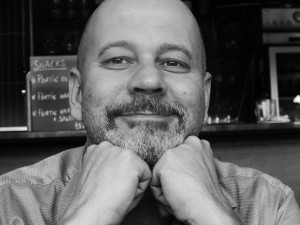 Professor dr. Tom Vanwing is the founder of LOCI and full professor at the Vrije Universiteit Brussel, Faculty of Psychology & Educational Sciences, Department Educational Sciences (EDWE). He studied Marketing and Informal Educational Sciences (Andragology), in which he made a Ph.D. on professionalization and innovation in non-formal educational settings, with a focus on community development. He also co-founded the Brussels folkhighschool Citizenne (www.citizenne.be) and the Master in Education and Research for Sustainable Development (http://vlir-iuc.uvs.edu/index.php/master-programme/master-in-education-and-research-for-sustainable-development-mersd) at the Anton De Kom University of Suriname. Currently based both in Brussels (Belgium) and Paramaribo (Suriname), his main research interest involves contemporary developmental issues and transitions with a scope on ‘communities’ through an intersectional approach, often in cooperation with other disciplines, such as engineering, biology, economy, government & administrative management. Groups, communities & configurations can be seen as an ‘eco-system’, in continuous interaction with their physical (natural, urban, rural), economical and societal environment. It is the study of this dynamic that often gains new insights & alternatives for the social quality of live. In the scope of LOCI, a multidisciplinary approach is realised through guiding research and coordinating project work: see the themes of PhD-students, resource persons & projects on this website.
Professor dr. Tom Vanwing is the founder of LOCI and full professor at the Vrije Universiteit Brussel, Faculty of Psychology & Educational Sciences, Department Educational Sciences (EDWE). He studied Marketing and Informal Educational Sciences (Andragology), in which he made a Ph.D. on professionalization and innovation in non-formal educational settings, with a focus on community development. He also co-founded the Brussels folkhighschool Citizenne (www.citizenne.be) and the Master in Education and Research for Sustainable Development (http://vlir-iuc.uvs.edu/index.php/master-programme/master-in-education-and-research-for-sustainable-development-mersd) at the Anton De Kom University of Suriname. Currently based both in Brussels (Belgium) and Paramaribo (Suriname), his main research interest involves contemporary developmental issues and transitions with a scope on ‘communities’ through an intersectional approach, often in cooperation with other disciplines, such as engineering, biology, economy, government & administrative management. Groups, communities & configurations can be seen as an ‘eco-system’, in continuous interaction with their physical (natural, urban, rural), economical and societal environment. It is the study of this dynamic that often gains new insights & alternatives for the social quality of live. In the scope of LOCI, a multidisciplinary approach is realised through guiding research and coordinating project work: see the themes of PhD-students, resource persons & projects on this website.
Research Interests
The specific approach of Educational Sciences (Andragogical Sciences) in Brussels involves the use of an interdisciplinary theoretical framework based upon a combination of the basic disciplines Philosophy, Sociology & Psychology. These are used as the supporting legs of a ‘tripod’ on which we can mount a camera with a multidisciplinary lens (a systemic way to look, analyse & act) to capture the continuous evolving societal landscape, to zoom in on the tension field between the individual & society, to track and register social change. But once the pictures are sharp and clear, the andragogical process only just starts, because andragogy is also an applied discipline, a kind of social engineering. Educational and participative praxis’s are used to contribute on the desired change of individuals, groups, communities in relation to their social, economic & ecological environment and their diverse dynamic cultural identities. From a humanistic viewpoint, this praxis has a sharp focus on and appreciation for the potential of people, whoever they may be, whatever their position on the societal ladder is, wherever (under what conditions or circumstances) they live. Human beings can master in flexible adaptation, (self-)regulation, agency, social interaction and creativity. Here techniques such as participative research, asset based community development and appreciative inquiry are deployed. Although the pictures show that most of societal problems such as isolation, inequality, ecological degradation, abuse of power and war are manmade, it is the same subject that holds some keys to alter this. Special attention lies in the ability of the social system to be able to re-define societal myths, to revise social relations, to re-appreciate the diverse cultural knowledge systems and to re-vitalise human initiative.
Publications
For a full publication list, see:
Academic Profiles
Teaching
At the Vrije Universiteit Brussel he teaches the courses ‘Andragogical Sciences’; ‘Andragology’; ‘Social and Cultural Transition Strategies for Sustainability & Development’ and ‘Management and Innovation for the Social & Non-profit’. At the Anton De Kom University of Suriname he teaches ‘Sustainable Development: Educational Theories and International Policy’; ‘Voices for SDG’s (Sustainable Development Goals)’; Preliminary Thesis and Master thesis Seminar.
Contact

Wolfgang Jacquet
Wolfgang Jacquet is an applied mathematician and professor of statistics at the Vrije Universiteit Brussel, Faculty of Psychology and Educational Sciences, co-founder of LOCI and lecturer at the Anton de Kom Universiteit of Suriname in the framework of a Vlir-UOS project.
His major scientific interest is the application of statistics and the development of measurements systems both from a practical and a theoretical point of view.
As such he is involved in education and sustainable development around the world as a statistician and as applied mathematician in the oral health research. He acts as research-coach. In his lectures his aim is to go from concept to application in a non-mathematical technical fashion.
Publications
For a full publication list, see:
https://cris.cumulus.vub.ac.be/portal/en/persons/wolfgang-jacquet/publications.html
Academic Profiles
Pieter Meurs
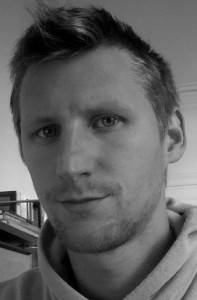 Pieter Meurs holds a master degree in Informal Educational Sciences and a master and doctoral degree in Philosophy and Moral Sciences (VUB). He has presented and published papers on critical theory, political philosophy, (post-) phenomenology and has written extensively on Merleau-Ponty and Jean-Luc Nancy. His current research is focused on the philosophy of globalization, myths and worldviews. By combining social critique and questions of ontology, he investigates what a changing world philosophically means to us and how we can act upon it. Pieter Meurs is a lecturer at the Vrije Universiteit Brussel, Faculty of Psychology and Educational sciences and at the Anton de Kom University of Suriname. He is member and co-founder of the research group LOCI.
Pieter Meurs holds a master degree in Informal Educational Sciences and a master and doctoral degree in Philosophy and Moral Sciences (VUB). He has presented and published papers on critical theory, political philosophy, (post-) phenomenology and has written extensively on Merleau-Ponty and Jean-Luc Nancy. His current research is focused on the philosophy of globalization, myths and worldviews. By combining social critique and questions of ontology, he investigates what a changing world philosophically means to us and how we can act upon it. Pieter Meurs is a lecturer at the Vrije Universiteit Brussel, Faculty of Psychology and Educational sciences and at the Anton de Kom University of Suriname. He is member and co-founder of the research group LOCI.
Research Interests
Philosophy, Critical thinking, (post)phenomenology, Deconstruction
Current Research
Myth, worldview and education
Publications
Meurs, P., 2015. Jean-Luc Nancy, myth, ideology. In : Philosophy Pathways. 191, 2
Meurs, P. & Devisch, I., 2015. The Meaning of Sense. In: Being Social: Ontology, Law, Politics. Matthews, D. & Mulqueen, T. (eds.). Counterpress, 3. (Being Social: Ontology, Law, Politics)
Meurs, P. & Note, N. 2012, De einder van links: een nanciaanse reflectie over grenzen en mogelijkheden. In : Ethische Perspectieven. 22, 1, p. 75-90
Meurs, P., 2012, Education as praxis: a corporeal hermeneutical account. In : Meta: Research in Hermeneutics, Phenomenology and Practical Philosophy. 4, 2, p. 363-376
For a full publication list, see:
Academic profiles
Teaching
Philosophy and Development, Philosophical Introduction of Education Sciences, Worldviews
Contact
Bieke Abelshausen
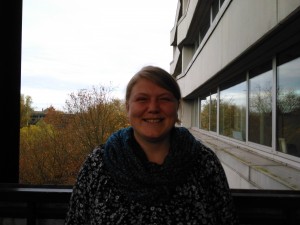 Bieke Abelshausen holds a Master of Science in the Advanced Studies in Human Ecology from the Vrije Universiteit Brussel and a professional bachelor degree in Socio-cultural work from the KHLeuven. Her expertise lies in community development in the frame of Integrated Coastal Zone Management in Vietnam. Specifically, she conducts research in stakeholder participation and knowledge sharing for coastal communities and the importance of context for sustainable development. Currently, Bieke Abelshausen conducts a PhD research (2012-2016) as a VLADOC scholar (VLIR-UOS) at the Faculty of Psychology and Educational Sciences. In Vietnam, Bieke Abelshausen cooperates with the Hanoi National University of Education and the Vietnam Administration of Seas and Island, under the Ministry of Natural Resources and Environment. Specifically, Bieke Abelshausen conducts research in Ran Trao, Van Hung commune in Khanh Hoa province and Cu Lao Cham Island, part of the Hoi An –Cu Lao Cham Biosphere reserve in Quang Nam province. She specialises in both qualitative (interviews, focus groups) and quantitative (questionnaires) research methodologies and analysis tools.
Bieke Abelshausen holds a Master of Science in the Advanced Studies in Human Ecology from the Vrije Universiteit Brussel and a professional bachelor degree in Socio-cultural work from the KHLeuven. Her expertise lies in community development in the frame of Integrated Coastal Zone Management in Vietnam. Specifically, she conducts research in stakeholder participation and knowledge sharing for coastal communities and the importance of context for sustainable development. Currently, Bieke Abelshausen conducts a PhD research (2012-2016) as a VLADOC scholar (VLIR-UOS) at the Faculty of Psychology and Educational Sciences. In Vietnam, Bieke Abelshausen cooperates with the Hanoi National University of Education and the Vietnam Administration of Seas and Island, under the Ministry of Natural Resources and Environment. Specifically, Bieke Abelshausen conducts research in Ran Trao, Van Hung commune in Khanh Hoa province and Cu Lao Cham Island, part of the Hoi An –Cu Lao Cham Biosphere reserve in Quang Nam province. She specialises in both qualitative (interviews, focus groups) and quantitative (questionnaires) research methodologies and analysis tools.
Research Interests
Human ecology/Participation/Knowledge sharing/Sustainability/Interdisciplinarity/Integrated Coastal Zone Management/Marine Protected Area/Biosphere reserves
Current Research
Introducing societal stakeholders as co-decision makers in Integrated Coastal Zone Management in Vietnam: the influence of bi-directional knowledge sharing on participatory processes and methods.
Publications
For a full publication list, see:
Academic Profiles
Teaching
Lecturer in ‘Social and Cultural Transition Strategies for Sustainability & Development’ (Prof. Dr. Tom Vanwing)
Contact

Lieselotte Vaneeckhaute
In 2012 Lieselotte finished her Master’s in Adult Educational Sciences at the Vrije Universiteit Brussel. She also holds a Bachelor’s Degree in Audiovisual Arts: Screenplay Writing (RITS, Brussels). Since 2013, Lieselotte is a PhD student at Vrije Universiteit Brussel. Her current research is on the role of community development in enhancing community resilience in the context of large-scale gold mining. She is conducting her field research in a forest-dependent Maroon community in the interior of Suriname. Her main research interests are: asset-based community development, sustainable development, community resilience, tribal/forest-dependent communities, systems thinking, corporate social responsibility, large-scale mining and participatory methodology. Lieselotte is also the Exchange Coordinator for the students Adult Educational Sciences at the department Educational Sciences (EDWE).
Current Research
The Role of Community Development in Enhancing Community Resilience in the Context of Large-Scale Mining: A Community Based Research with the Paramaccan Maroon Community in Suriname.
Teaching
Guest lecturer: Bachelor and Master Adult Educational Sciences at Vrije Universiteit Brussel, Belgium and Master Education and Research for Sustainable Development at Anton de Kom University, Suriname.
Contact

Mbunya Francis Nkemnyi
Mbunya Francis Nkemnyi is currently a doctoral student (year 3) in development studies at the Institute of Development Policy and Management (IOB), University of Antwerp, Belgium. His doctoral thesis is titled “making the environment-development nexus: the case of the Tofala Hill Wildlife Sanctuary, Cameroon”. His wider research and career can also be situated with the theme the environment-development nexus. His interests are in exploring how local livelihood challenges could be overcome given the controversy between local livelihood and forest conservation in the tropics. He is also interested in understanding how institutional arrangement play out during the process of negotiations and implementation of conservation projects (how are stakeholders’ interests prioritised and eventually implemented).
In addition, Francis also works as the Executive Director of a local non-profit organisation in Cameroon (Resource Centre for Environment and Sustainable Development- http://rcesdcam.org/). The focus of this non-profit organisation is on building local capacity for sustainability in environment-development interventions.
Current Research
Making the Environment-Development Nexus: the case of the Tofala Hill Wildlife Sanctuary, Cameroon
Publications
- Nkemnyi, M. F., De Herdt, T., Semakula, H. M., & Nkenglefac, F. D. (2014). Boosting Knowledge Through Awareness Raising?: An Underexploited Opportunity for Community Forestry in South West Cameroon. Environment and Natural Resources Research, 4(3), 39–50. doi:10.5539/enrr.v4n3p
- Nkemnyi, M. F., Haas, A., Etiendem, N. D., & Ndobegang, F. (2013). Making hard choices: balancing indigenous communities livelihood and Cross River gorilla conservation in the Lebialem–Mone Forest landscape, Cameroon. Environment, Development and Sustainability, 15(3), 841–857
- Nkemnyi, M.F. Nkembi, L., Nkemanteh, A.E. & Nku E.M. (2012). The Cross River gorilla and large mammals species diversity in the in the Lebialem-Mone Forest Landscape. Journal of Biodiversity and ecological science. 2(1), pp.73-79
- Nkemnyi, M. F., Koedam, N., & De Vreese, R. (2011). Livelihood and Conservation: Reconciling Communities’ Livelihood needs and Conservation Strategies in the Bechati forest area, Western Cameroon. Saarbrücken, Germany: LAMBERT Academic Publishing.
Christina Campo Santiago
Christina Campo Santiago is a PhD Student at Vrije Universiteit Brussel. Her current research is on educational practices in entrepreneurship to support the sustainable development of local communities in Colombia. Christina holds a Bachelor’s degree in International Relations from Universidad del Norte in Barranquilla, Colombia. She obtained a master’s degree in Business Administration and a master’s degree in Environmental Law from Ocean University of China.
Research Interests
Education for entrepreneurship, social entrepreneurship, social innovation, environmental sustainability, food processing
Current Research
The sustainability of educational practices to support the development and deployment of ecologically friendly business practices in local communities in the northern region of Colombia
Publications
Campo, Christina. The trouble with sushi: the environmental cost of fish farming practices. Tvergastein Interdisciplinary Journal of the Environment. Centre for Development and Environment (SUM)-University of Oslo. Issue 5,2/2014. P. 100-101. ISSN 1893-5834
Academic Profiles
Contact
Marisela Terrazas-Muñoz
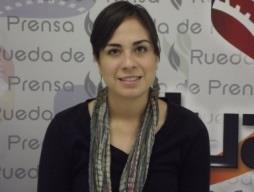 Marisela Terrazas-Muñoz is a PhD student at the Vrije Universiteit Brussel (VUB), Faculty of Educational Sciences. Her main research areas are education for citizenship and education for peace. She is currently working on a case study in Juarez, Mexico. The Organization of American States (OAS) grants her for her doctoral studies. Marisela is a social activist and volunteer in some organizations in Juarez, Mexico mainly in ones focused on leadership, civic participation and transparency.
Marisela Terrazas-Muñoz is a PhD student at the Vrije Universiteit Brussel (VUB), Faculty of Educational Sciences. Her main research areas are education for citizenship and education for peace. She is currently working on a case study in Juarez, Mexico. The Organization of American States (OAS) grants her for her doctoral studies. Marisela is a social activist and volunteer in some organizations in Juarez, Mexico mainly in ones focused on leadership, civic participation and transparency.
Current Research
Education for citizenship: Ciudad Juarez, Mexico Case Study.
Academic Profiles
Olten Lionel Van Genderen
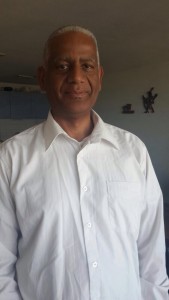 Olten Lionel Van Genderen is a senior expert in adult education and international relations. He studied at the University in Suriname, as Bachelor in Social Science (1980) and as Master in Social Sciences (1985). He followed several special courses in the area of international relations and development cooperation in the Netherlands, Belgium and Geneva. He has working experiences in Suriname, the Netherlands, and in Belgium as trainer and advisor in the area of intercultural communication, development cooperation and adult education. He worked as advisor for the Embassy of Suriname as well as independent educational supervisor at the Belgian Technical Cooperation and as international policy officer at the Centre for Adult Education. Furthermore he has working experiences with several international organizations such as the ACP, UNESCO, and OAS. His area of specialization is adult education, development cooperation, and international relations. He has produced several internal papers about the (political and trade) relations between the developed and developing countries.
Olten Lionel Van Genderen is a senior expert in adult education and international relations. He studied at the University in Suriname, as Bachelor in Social Science (1980) and as Master in Social Sciences (1985). He followed several special courses in the area of international relations and development cooperation in the Netherlands, Belgium and Geneva. He has working experiences in Suriname, the Netherlands, and in Belgium as trainer and advisor in the area of intercultural communication, development cooperation and adult education. He worked as advisor for the Embassy of Suriname as well as independent educational supervisor at the Belgian Technical Cooperation and as international policy officer at the Centre for Adult Education. Furthermore he has working experiences with several international organizations such as the ACP, UNESCO, and OAS. His area of specialization is adult education, development cooperation, and international relations. He has produced several internal papers about the (political and trade) relations between the developed and developing countries.
In his capacity as guest lecturer sustainable development at the Anton de Kom University in Suriname, he is participating in this research group.
Contact Information
Karlene Gavin
Karlene Gavin holds a Masters degree in Science Education (2009) and a Masters degree in Nutrition (2000) from the University of the West Indies, Mona. She has served twenty (20) years as an educator in the field of science education. She has taught at both the secondary and tertiary levels. She is employed at the College of Agriculture, Science and Education where she holds the position of Head of Department (Biological and Physical Sciences) in the Faculty of Science. Currently she is pursuing PhD studies at the Vrije Universiteit Brussel (VUB) in the Faculty of Psychology and Education. Her research will focus on STEM/STEAM in the teacher education curricula and also look at the impact of gender on STEM/STEAM education. She is a member of the research group LOCI.
Céline Cocquyt
Celine obtained a Master degree in Educational and Instructional Sciences at Ghent University. Her Master thesis covered peer assessment and peer feedback in higher education. She also performed a research internship in South-Africa, contributing to the development and implementation of writing centers in primary schools located in rural areas. Ever since, Celine has been driven by conducting research. Next, she decided to complete teacher training and a postgraduate program in Social Profit and Public Management. Currently Celine is working on a PhD project, namely ‘socially inclusive ICT-based adult education’ at the Vrije Universiteit Brussel.
Research interests
Lifelong learning, Adult (basic) education, Social inclusion, Social capital, Implementation of ICT in education, Online, blended and e-learning
Current Research
Relating participation in adult education to social inclusion and social capital: a focus on ICT-practices in lifelong learning
Publications
For a full publication list, see:
Academic Profiles
Contact

Anh Nguyet Diep
Anh Nguyet Diep obtained her master degree in Educational Sciences from the Vrije Universiteit Brussel (VUB) in 2014. From September 2014, she has been working as a PhD researcher at the department of Educational Sciences, VUB, in the field of ICT-based adult education.
Research Interests
Blended learning with students’ learning, satisfaction, and online interaction
Current Research
ICT-based Adult Education: Empirical Evidences and Perspectives from the Learners In Terms of Access, Learning Needs, and Social Inclusion
Academic Profiles
Teaching
Introduction to Applied Statistics and Applied Statistical Methods (TA)
Contact

Adriana Moreno Cely
Adriana is currently a PhD Student at Vrije Universiteit Brussel. She hold three Master degrees in Natural Resource Management; Education; and Humanitarian Aid & International Cooperation. Her working experience has been focused on education and community development in urban and rural areas; promoting self-management processes and community autonomy using gender-sensitive approaches. She has developed and adapted several participatory methodologies to work with young, adults and elderly people in Colombia.
Research interests
Transdisciplinary and participatory action research, sustainable community development, wicked problems, community of practice, multi-stakeholder analysis and outreach university.
Current Research
Transdisciplinary Knowledge Co-creation: Linking Innovation and Community Engagement in University Outreach for an inclusive local sustainable development.
Publications
http://historico.accioncontraminas.gov.co/Cooperacion/Documents/LIS_informe_resultados.pdf
http://historico.accioncontraminas.gov.co/Documents/LIS_informe_final.pdf
http://www.revistavarela.rimed.cu/articulos/rv1106.pdf
Academic Profiles
Contact
E-mail

Aline Dusabe
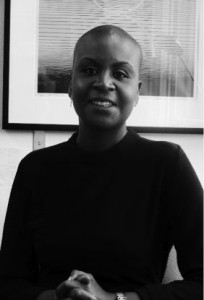
Aline Dusabe is a professional on Community Development at LOCI since September 2015. She holds a MSc in Informal Educational Sciences – Culture Education from the Vrije Universiteit Brussel (VUB) and is following a Master in Education and Research for Sustainable Development (MERSD) at the Anton de Kom University of Suriname.
Aline worked at the Ministry of Regional Development of Suriname as a policy coordinator on environmental issues: climate change in relation to community development. Currently she is working in the external monitoring team for Health in All Policy Project from the Pan American Health Organization (PAHO) in Suriname.
Before joining LOCI, Aline conducted research on Maroon Communities in Suriname including field- research in the interior. She disseminated this research in different lectures given in Suriname, Belgium & Tanzania.
Research Interests
Community Development, Tribal & Afro-descendent Communities, Gender studies, Climate Change, and International Cooperation.
Contact
Randy van Zichem

Randy van Zichem holds a doctoral degree in Pedagogical Sciences (Andragology) since march 2015 (from the VUB). He is co-founder of the Master in Education and Research for Sustainable Development (http://vlir-iuc.uvs.edu/index.php/master-programme/master-in-education-and-research-for-sustainable-development-mersd) at the Anton De Kom University of Suriname. As director of the University Sports Bureau (USB) of the Anton de Kom University he aims to enhance healthy life style awareness within the University community and develop means from grassroots sports upto top sport development and research. Further he works close with the PAHO (Pan-American Health Organization – Suriname) at issues concerning ‘Health in All Policies’ as a facilitator, the UNDP-Suriname and Indonesian communities and Martial Arts organizations in Indonesia. He has working experience in Suriname and the Netherlands as educational director and lecturer in the area of education, intercultural communication and development cooperation.
Research interest
Community Development, Personal Cultivation, Embodied Knowledge, Martial Arts
Current Research
His research focuses on community development issues, human development, educational change and martial arts.
Teaching
He teaches Education Development and Change, Philosophy and Development, Voices for Sustainable Development Goals (Sustainable Development Goals), Preliminary Thesis and Master thesis Seminar, Advanced Qualitative Research and is responsible for Fieldtrips (of the MERSD) to the interior of Suriname and the region.
Professional Profile
http://www.uvs.edu/deelname-van-suriname-aan-de-28ste-universiade-in-gwangju
-korea/
Contact Information
Tjitske de Groot
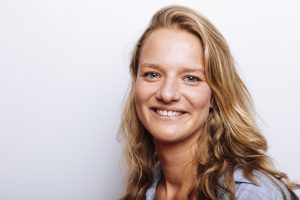
Tjitske de Groot conducts a PhD research (2016-2020) as a VLADOC scholar (VLIR-UOS) on Stigma Reduction Interventions related to Albinism in Tanzania. Through participatory action research in local communities and in the formal education system stigma reduction interventions will be developed, implemented and assessed. There will be a focus on the effectiveness, sustainability and possibilities for distribution of the interventions. With this research she wants to contribute to the understanding of the stigma attached to albinism in Tanzania and add to the knowledge on reduction of health-related stigma. Tjitske holds a Master degree in Educational Science from the Vrije Universiteit Brussel and a Bachelor degree in Cultural Anthropology and Development Sociology from the University of Amsterdam.
Research interest
Health-related Stigma, Albinism, Witchcraft, Interactive Learning and Action Approach, Social Inclusion, Migration, Urban Education, Community Development, Global Health, Cultural Anthropology.
Current Research
How to break the myth of albinism? The development and assessment of albinism related stigma reduction interventions in local community and formal education in Tanzania.
Contact Information

Research
Making the Environment-Development Nexus: the case of the Tofala Hill Wildlife Sanctuary, Cameroon
The relationship between poverty and the environment is complex and highly influenced by the socio-economic factors of the locality. Negotiating environmental conservation and development actions requires greater emphasis on diverging values and diverging preferences for the scale of operation and action. Conservation projects must also address the livelihood aspects of local population relying on resources to ensure management sustainability. Thus, the prospect of local people to sustain community-based natural resource management livelihood security and conservation needs is centered on how well programs are embedded in sociocultural relations, politics, resource needs and uses.
In this line, establishing sustainable linkages between environmental conservation and development actions requires the consideration of how policies influence and are influenced by stakeholders. The analysis of these linkages also needs to take into consideration institutional settings and human-made constraints that shape individual behavior. How conservation and development linkages can translate into better management and policy actions in the Tofala Hill Wildlife Sanctuary (THWS), Cameroon and beyond is the main focus of this study.
Introducing societal stakeholders as co-decision makers in Integrated Coastal Zone Management in Vietnam: the influence of bi-directional knowledge sharing on participatory processes and methods.
Integrated Coastal Zone Management (ICZM) is a national governance approach that aspires the sustainable management of coastal areas. Within this framework research is conducted on stakeholder participation and knowledge sharing in two research locations in the central coast of Vietnam; Ran Trao Marine Protected Area in Van Hung commune, Khanh Hoa province and Cu Lao Cham (Island) Marine Protected Area, Quang Nam province. The implementation of ICZM in Vietnam is challenged by notions of participation and knowledge sharing developed in western societies. The question that arises is whether or not these notions should (can) be adapted to the locality in which they are used to allow for sustainability. This research aims to provide insight in the importance of contextualisation in the sustainability dimension of Integrated Coastal Zone Management. Research is conducted by gathering empirical data through the use of a mixed method approach including qualitative (semi-structured interviews, focus groups) and quantitative (questionnaires) research methodologies and analysis tools.
Education for citizenship: Ciudad Juarez, Mexico Case Study.
This research will be developed as a case study in a public Middle School in Juarez, Mexico. The project examines the impact of education for citizenship through a multi-layered analysis of Social Studies official textbook in Mexico. By examining this textbook it is possible to identify the weaknesses in teaching citizenship. The textbook analysis is enriched by an introductory interview with the Social Sciences teachers, classroom observations, curriculum and lesson planning evaluation. The guidelines for this textbook analysis are based on the three dimensions for the Global Citizenship Education established by UNESCO: cognitive, socio-emotional and behavioral. These domains support the aim of citizenship education to be transformative and build knowledge, skills, values and attitudes that students need to be able to contribute to a more inclusive, just and peaceful community. Juarez, Mexico, the border city with the United States, was tagged as one of the most dangerous cities in recent years, where murders, corruption and drugs dealing increased at that time. The environment of violence and impunity produces feeling of fear causing the devaluation of citizenship, decreasing affective emotions to the community and discouraging the active participation of citizens.
The reconstruction of citizenship might begin in new generations, throughout formal education and contributing in teachers’ motivation, presenting to their students which active role of a good citizen must play.
The sustainability of educational practices to support the development and deployment of ecologically friendly business practices in local communities in the northern region of Colombia
The research work aims to focus on the evaluation of the complex systems that make up the framework of a rural community in the northern region of Colombia and how the training programs looking to empower local communities fit into the social context of this particular locale.
The Role of Community Development in Enhancing Community Resilience in the Context of Large-Scale Mining: A Community Based Research with the Paramaccan Maroon Community in Suriname.
In 2014 Newmont Mining Corporation started operating a large-scale gold mining project in the interior of Suriname, near the territory of the Paramaccan Maroons. This forest-dependent Paramaccan community is subject to changes (e.g. social, cultural, political, human, natural, economical, infastructural) due to the large-scale gold mining project. The aim of the community based research is to explore the role of community development in enhancing community resilience in the context of large-scale gold mining. Empirical data is gathered through the use of various social science methods: survey, semi-structured interview, photovoice, rich picture, focusgroup, storrytelling.
Relating participation in adult education to social inclusion and social capital: a focus on ICT-practices in lifelong learning
This PhD research is situated within the VUB SRP Groeier Project ‘Socially inclusive ICT-based adult education’. The project combines the research domains of lifelong learning, social inclusion and ICT in education, contributing to the gap in research on the soft outcomes emanating from participation in ICT-based adult education. The PhD research consists of two main research focuses. The first one studies the social inclusion of online and blended adult learners. This part pays attention to the characteristics of the adults engaged in online and blended learning and also of the learning environment, aiming to explore the relationships between those characteristics. Based on the results of the first research focus, the project continues in the context of adult basic education. Thus, the second focus includes research on the social relations and adoption of ICT-tools among adults who are low-educated, low-skilled or illiterate.
ICT-based Adult Education: Empirical Evidences and Perspectives from the Learners In Terms of Access, Learning Needs, and Social Inclusion
The research is conducted within the framework of the VUB’s Strategic Growth Project on ICT-based socially inclusive adult education. The main aims of the study is to investigate the influence of adult learners’ characteristics and learning environment on their online participation and learning outcomes. Participants are adult learners from different centers for adult education in Flanders. Currently, the results demonstrate a positive effect of participation in the educational programs and in online interaction in particular as for adults’ social capital. For the next step, a mixed method study will be conducted to examine adult learners’ needs so as to yield more insights for adult educators concerning pedagogical practices and learners’ support.
Transdisciplinary Knowledge Co-creation: Linking Innovation and Community Engagement in University Outreach for an inclusive local sustainable development.
The research aims to provide more insight in how an integrated approach of University Outreach through participatory process involving multiple stakeholders can find innovative solutions for wicked problems and at the same time promote inclusive local sustainable development.
